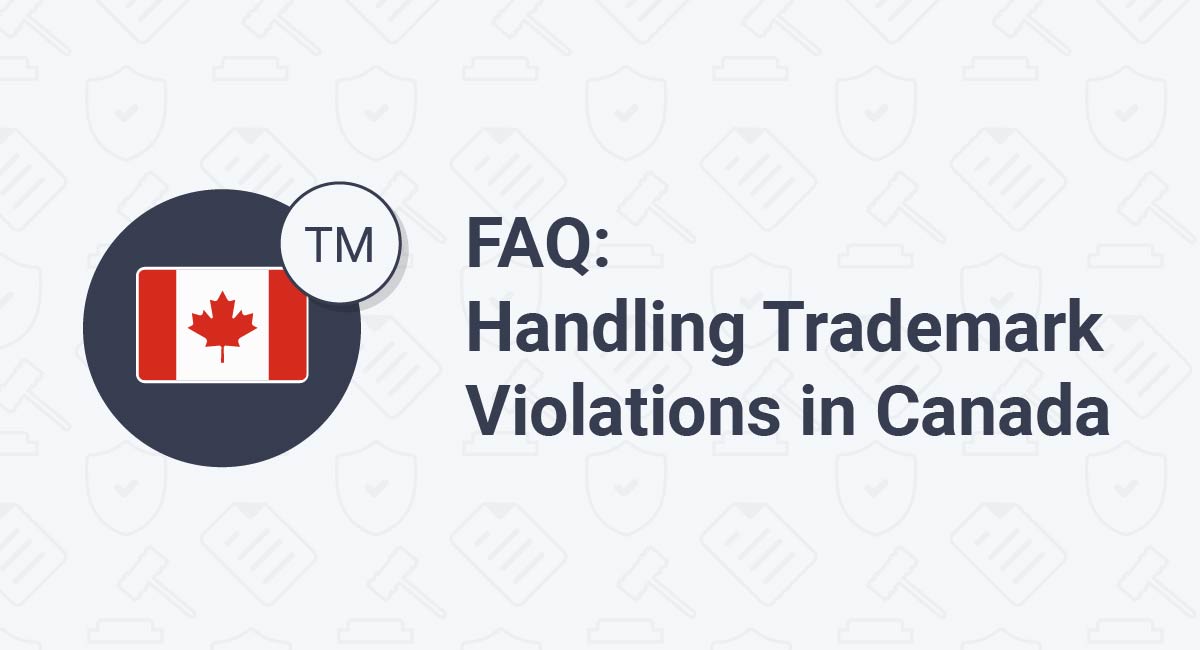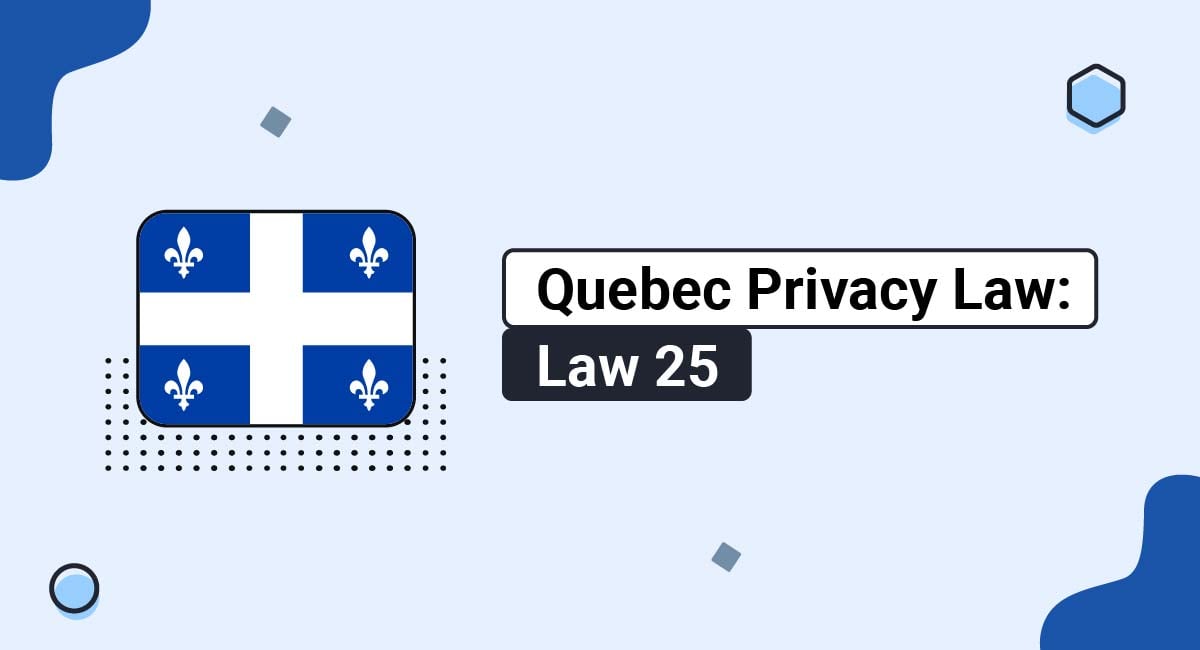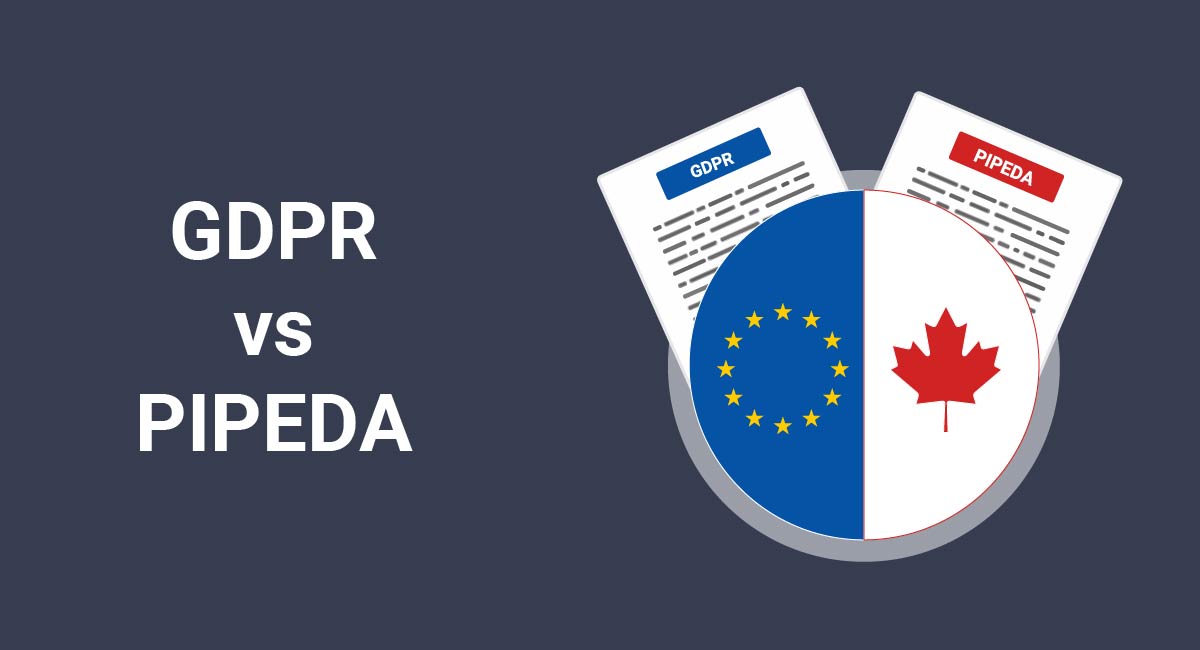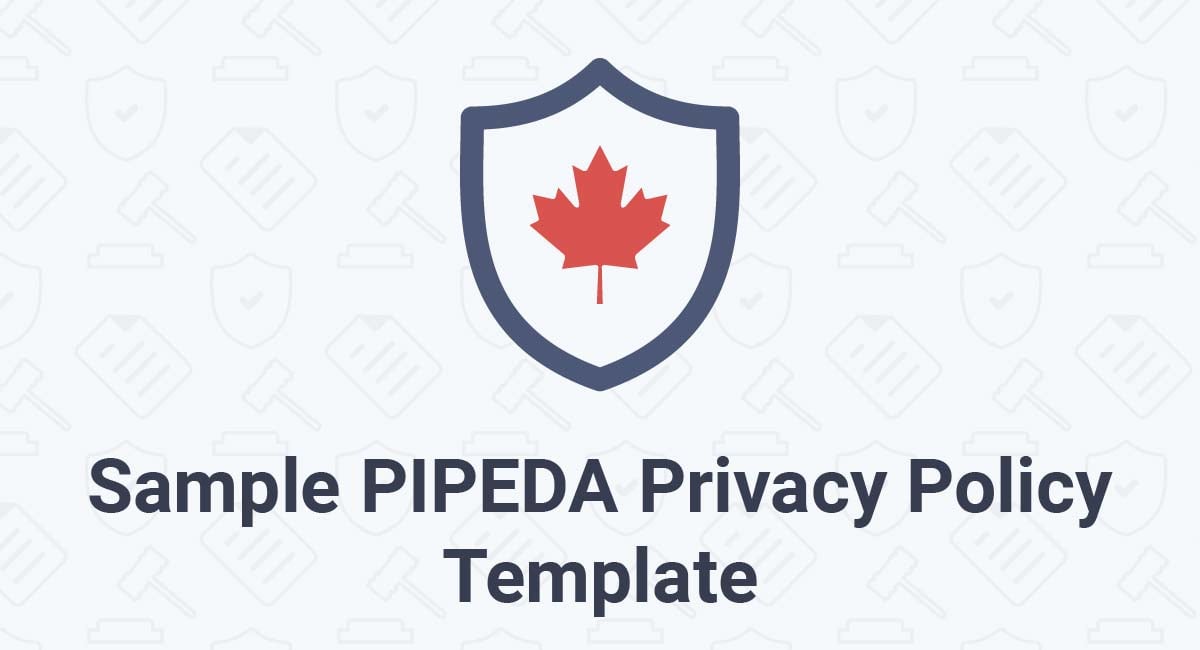Every business owner ought to think about the use of trademarks as part of their overall branding strategy. That is true throughout North America, but what happens if you own and operate a company in Canada and believe someone has violated your trademark?
Your customers must be able to recognize and select your services and products out of the vast array available to them from competitors. That's why you have got to be able to send the right message if and when someone infringes upon 'the legal deed" to your corporate image.
In this article, we'll provide the answers to some common questions about how to handle trademark violations in Canada.
Briefly, let's talk about some basics first, though.
What customers say about TermsFeed:
This really is the most incredible service that most website owners should consider using.
Easy to generate custom policies in minutes & having the peace of mind & protection these policies can offer is priceless. Will definitely recommend it to others. Thank you.
- Bluesky's review for TermsFeed. Read all our testimonials here.
With TermsFeed, you can generate:
- 1. What are Trademarks?
- 2. What are Trademark Violations and Infringement?
- 3. How is Trademark Infringement Determined?
- 3.1. The Role of Confusion
- 3.2. Factors Taken Into Consideration
- 4. Who Can File a Trademark Infringement Complaint?
- 5. What Remedies Exist for Trademark Violations?
- 6. How Does Canada Enforce Trademark Laws?
- 6.1. The Court System
- 6.2. There are No Juries
- 6.3. Criminal Actions
- 7. What Proceedings Format Should You Expect?
- 8. Can You Fast Track Proceedings?
- 9. Should You Send a Cease and Desist Letter?
- 10. Can You Stop Someone from Using Your Trademark Across the Canadian Border?
- 11. What Kind of Litigation Costs Might You Face?
- 12. Are There Alternatives to Going to Court?
What are Trademarks?
Trademarks can be pictures, sounds, words, designs (symbols), or any of these put together. They're used to differentiate the services or products of one company from those of another. In general, there are two kinds of trademarks.
These are:
-
Certification Marks - These may be licensed to many companies or individuals to show that specific services or products meet an established standard. For instance, the Canadian Intellectual Properties Office notes that Woolmark Americas Ltd. uses the Woolmark design on all their products and clothing as seen below:
- Ordinary Marks - These include colors, shapes, scents, sounds, holograms, moving images, mode of packaging, textures, designs, tastes, or any of these in combination when used to differentiate the services or goods of an individual or organization from that of others. For example, suppose you decided to start a software company dedicated to creating an installation program that would automatically re-write code to port a program from one device to another without the need for human oversight. You might choose to call it N-Stall or something similar. You could then register the word "N-Stall" as a trademark provided you met all legal requirements.
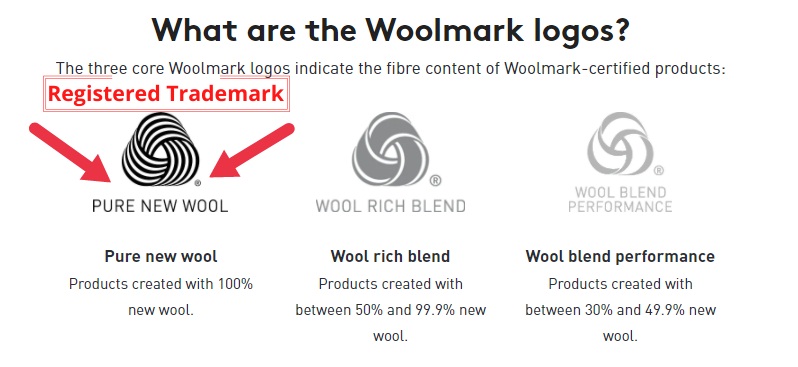
What are Trademark Violations and Infringement?

In Canada, the subject of trademark infringements can be tricky. That's because Canadian trademark protections are found in both common law and in legislation. What it's all about then, is if you own a Canadian company, you have recourse if you believe your trademark has been infringed even if your trademark has never been registered.
However, you need to be aware that your protection is limited because it only covers the specific services and products connected to your trademark. Additionally, trademark protection is often restricted by geographic area.
For instance, a common-law trademark extends to geographic areas where consumers are aware of your products and services. Your trademark has to be on the package of the product the consumer bought when that consumer bought it. If it's a service, then your trademark must be used in the advertising or when providing that service.
In contrast, a registered trademark provides protection across the entire country, whether consumers are aware of your products and services or not.
How is Trademark Infringement Determined?

Again, this can be a gray area since it's not likely that known competitors will try to deceive customers into thinking that their products or services are yours.
With that said, under Canadian common-law, a type of infringement called "passing-off" is committed when one business deceptively markets services or products in a way that "passes them off" as those of another business.
Interestingly, the Canadian Trademarks Act (TMA) provides for a statutory cause of action. In other words, Canadian legislation also prohibits "passing off" in section 7 of the TMA.
Either way, "passing off" may occur, but it is rare because it is an accepted practice in Canada for one company to have the same trademark as another as long as the marks are used for different services and products.
The Role of Confusion
Confusion over whether a product or service belongs to one company or another if they happen to have the same trademark is more common when it comes to infringement disputes. A consumer's first impression is the test.
As stated in the TMA:
(3) The use of a trademark causes confusion with a trade name if the use of both the trademark and trade name in the same area would be likely to lead to the inference that the goods or services associated with the trademark and those associated with the business carried on under the trade name are manufactured, sold, leased, hired or performed by the same person, whether or not the goods or services are of the same general class or appear in the same class of the Nice Classification.
Factors Taken Into Consideration
Factors that are normally taken under consideration to determine whether "the somewhat-hurried consumer" is confused by a trademark are the following:
- How closely trade-names or trademarks are to one another in terms of sound, appearance, or in the concepts brought to mind by them
- The nature of the trade
- The nature of the business, products, or services
- How long the trademarks or trade-names have been in use
- How well-known the trademarks happen to be
- The innate uniqueness of the trademarks
Who Can File a Trademark Infringement Complaint?
You can.
In fact, any legal or physical person, lawful association, lawful trade union, etc. can file a trademark infringement action if affected by an act, contemplated act, or omission, which is contrary to the TMA.
What Remedies Exist for Trademark Violations?

Whether you believe that someone is trying to pass off your trademark as their own or your competitor simply has a trademark that is too confusingly close to yours, the offending party faces numerous liabilities under Canada's TMA, which include:
- A temporary injunction
- A permanent injunction
- An accounting of profits or damages
- Legal costs
- Interest (Pre-and-post judgment) - Payable on the awarded judgment and calculated from the moment litigation began until payment is received
- Reasonable compensation for pre-grant sales
- Delivery and destruction of advertising materials found to be in violation
It might sound odd, and it may lead you to ask why in the world you should register your trademark, but common law remedies are almost exactly the same as those provided for under the TMA.
Many experts argue that you should still register your trademark since doing so offers prima facie evidence of ownership. If you've registered your trademark, you don't have to prove that you own it. In case of a challenge, the burden of proof is on the challenger.
Moreover, when you register your trademark, you're essentially letting all comers know that you intend to defend your mark.
How Does Canada Enforce Trademark Laws?

While there are remedies available for you, how does it all work if someone infringes on your trademark? Do you need to go to court? If so, what kind? Do you have to go to some kind of special trademark court or tribunal?
The Court System
There are two different court systems in Canada when it comes to trademark enforcement, which deal with trademark issues.
- Provincial superior courts - These courts have jurisdictions limited to the territories and individual provinces of Canada. These are courts of general jurisdiction.
- The Federal Court of Canada - This is a court with federal jurisdiction that issues rulings that affect the entire nation. This court handles issues of specific subject-matter such as that conferred by the TMA.
Both provincial superior courts and the Federal Court of Canada have concurrent jurisdiction when it comes to trademark conflicts, which include both passing off and trademark infringement.
With that said, it may be better to have your case heard in the Federal Court of Canada for two reasons:
- National impact
- Complete and thorough remedies
There are No Juries
A judge hears trademark disputes in Canada without a jury. Although there are juries in provincial superior courts, they are not typically used in trademark cases. When it comes to The Federal Court, there are no juries at all.
Criminal Actions
The Canadian criminal code focuses attention on the sale, offer for sale, or distribution of products that are counterfeit in nature and which are commercial in scale. It also focuses on the manufacture, import, possession, export, or effort to export counterfeit products and packaging or labels designed to be sold or distributed commercially.
For example, offenses include:
- Forging a trademark
- Passing off
- Possessing (or getting rid of) necessary instruments to forge a trademark
- Using bottles that have the trademark of another with the intent to defraud or deceive
- Defacing a trademark
- Advertising or selling reconditioned goods with the trademark or trade name of another without full disclosure
It's important to note that only the Crown can bring criminal complaints against any party through its designated officials.
What Proceedings Format Should You Expect?

There are two different ways to bring action against someone you believe has infringed upon your trademark rights.
The more traditional route is known as "by way of action." On this route, there's live testimony and full discovery. This route can take a long time, with cases potentially taking years before there is a hearing and decision. Usually, this route ends up in the Federal Court.
The second route is known as "by way of application." This route is much faster, and there is no testimony or discovery. If you take this path, you can assume launch proceedings will start and then after six months there will be a hearing. However, it's possible that you could experience a delay due to court backlogs. Again, just as in the first route, applications are usually brought before the Federal Court.
Can You Fast Track Proceedings?
Not really, no. Canada doesn't provide a "fast-track procedure."
With that said, specific cases might be suitable for a summary trial or application. If they are, then the timeline can be substantially reduced. Indeed, there have been cases where an application was brought, and in less than 12 months from the start of proceedings, a hearing was held.
Also, it should be noted that the Federal Court attempts to set schedules that allow you to bring the dispute to trial within two years of filing an action.
Should You Send a Cease and Desist Letter?

It's common in Canada to send cease and desist letters to those suspected of infringing on a trademark before taking legal action. That's not compulsory, though.
You should still think carefully before sending a cease and desist letter and before attempting to take legal action. You could become liable if your opponent can prove that you're making misleading or blatantly false statements that could discredit their products, services, or their business as a whole.
Can You Stop Someone from Using Your Trademark Across the Canadian Border?
In most cases, you'll find that Canadian trademark law is limited to Canada, as are injunctions. However, in 2017 the case of Google Inc v Equustek Solutions Inc showed that Canadian courts actually could order injunctions outside of Canada's national boundaries under certain circumstances.
What Kind of Litigation Costs Might You Face?
It's a bit of a toss up. Costs often depend on how the proceeding moves forward, the issues involved, and the way you and your opponent behave during litigation. In general, however, you can expect to pay anywhere from somewhat less than $100,000 for fast, uncomplicated cases to well over $1 Million (Canadian) for aggressively contested actions and where the court's decision is appealed.
An upside to the huge potential cost is the fact that whoever wins is usually awarded costs.
Are There Alternatives to Going to Court?

It may be worth it to consider alternatives to a court battle. One such alternative is mediation. The Canadian Federal Court provides both case management officers and judges to mediate trademark disputes. In many cases, mediation results in positive outcomes.
In some provincial jurisdictions, you might serve your opponent with a notice to mediate. This would require them to participate in a mediation session. If they refuse or fail to appear, the court could dismiss any attempt at defense they might make.
Under provincial law, mediated settlements are enforceable in the same manner as other agreements.

Comprehensive compliance starts with a Privacy Policy.
Comply with the law with our agreements, policies, and consent banners. Everything is included.
